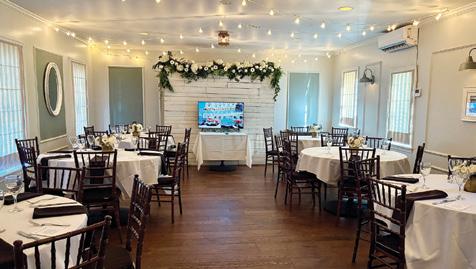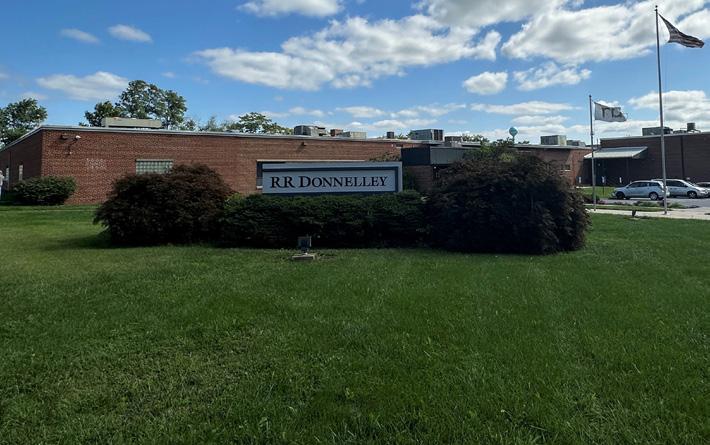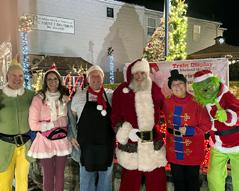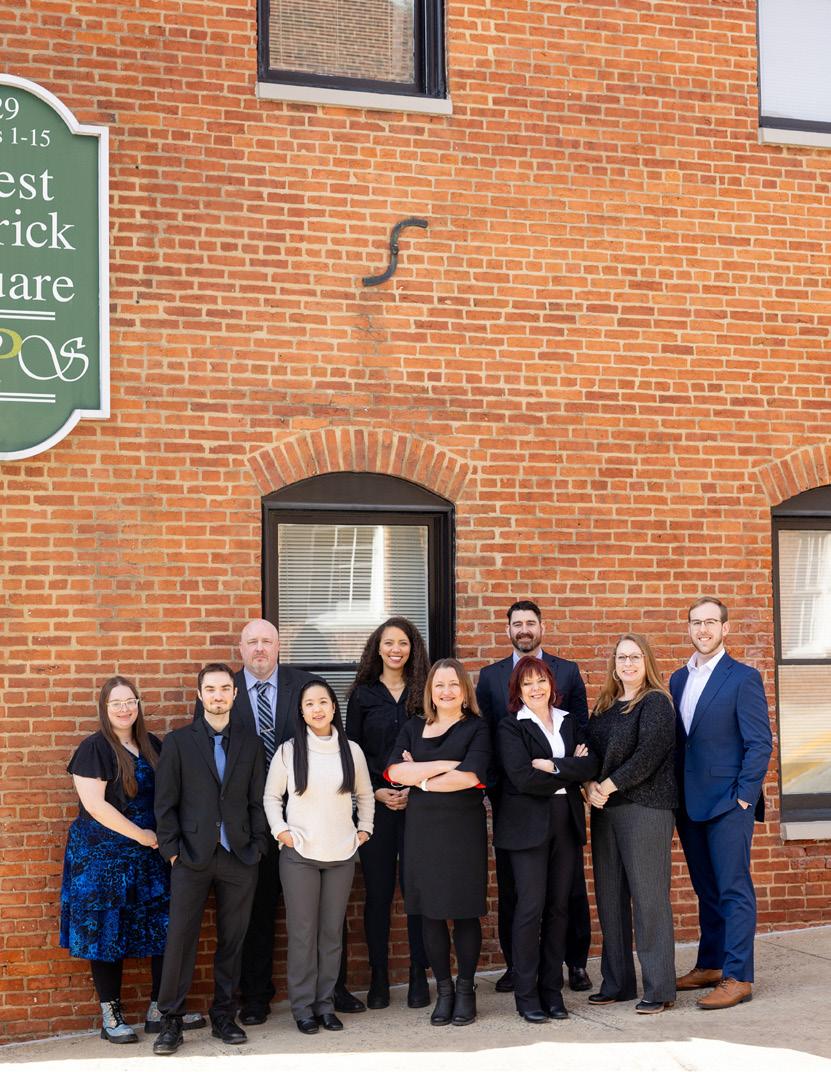
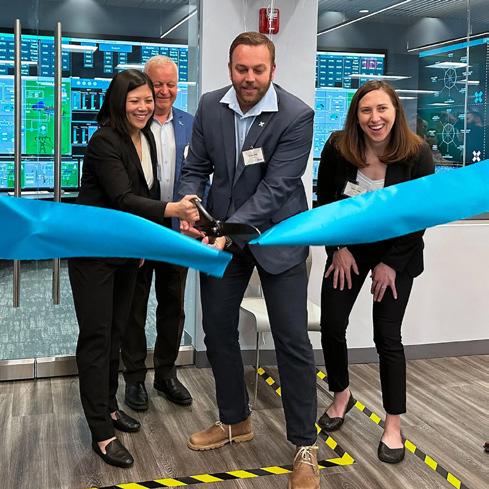




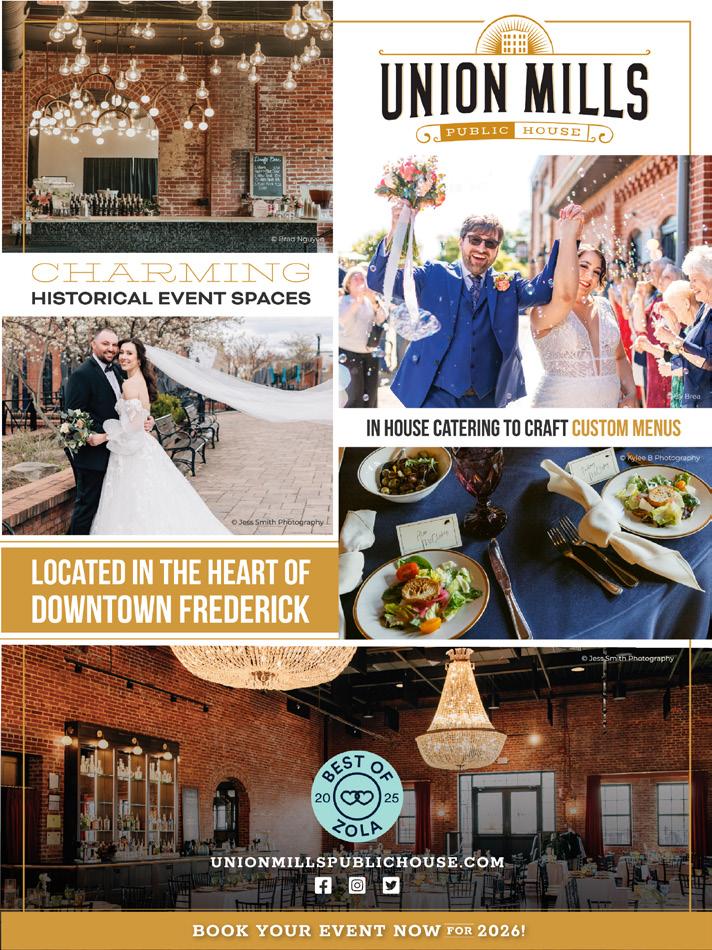








Dear Readers,
Ever since elementary school, the concept of collaboration has been built into our psyche. We learned early on all about group dynamics in various configurations, from pairs to small groups to an entire classroom full of people with diverse experiences working together to meet a common goal. The same principles we learned back then can and should be applied to the business community.
When businesses look for ways to partner with the community and other businesses, the opportunity for overall success increases for everyone. In this issue we share how Frederick-area groups and businesses have partnered with Transit's Adopt a Stop program, how local waste management and other businesses work together for the best solutions, and how family legacy companies such as Catoctin Mountain Orchard partner with the Frederick County Public Schools to be sure our future business leaders have access to fresh, local produce for lunch.
This entire issue is filled with people, organizations and businesses that are proving on a daily basis that a business community that leans in to collaboration builds success for all.
The opinions expressed here are not reflective of the views and opinions of Frederick Business Quarterly or Pulse Publishing, LLC.
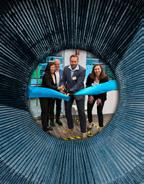
PUBLISHER
Donna S. Elbert donna@pulsepublishing.net
EDITOR/CREATIVE DIRECTOR
Melissa Howes-Vitek melissa@pulsepublishing.net
DIRECTOR OF OPERATIONS
Gabby Mongeau gabby@pulsepublishing.net
COPY EDITOR
Molly Fellin Spence molly@pulsepublishing.net
GRAPHIC DESIGNER
Ana Lazo Eastep
CONTRIBUTING PHOTOGRAPHERS
Trent Bell
Shuan Butcher
Mary Dennis
Naomi Pearson
DISTRIBUTION distribution@pulsepublishing.net




Shuan Butcher is a nonprofit professional, writer, and event planner. He previously served as the executive director of the Frederick Arts Council and has been a member of the City of Frederick’s Public Art Commission and the Visit Frederick board of directors.
Mary Dennis is the Communications Manager for Transit Services of Frederick County, where she leads communications, outreach, and media engagement. Her work focuses on keeping riders informed, inspiring community involvement, and promoting the value of public transportation.
Naomi Pearson is an accomplished journalist who began writing features and short articles for local magazines about people, activities, and community issues particular to Frederick County, shortly after moving to the area in 2009. She freelanced as a side hustle to her day job in her previous role as a technical writer and editor. She also was a Citizen Blogger ("Fresh in Frederick") for the Frederick News Post until the program was discontinued in 2017.
Chris Slattery is an avid storyteller who covered the arts and entertainment for The Gazette and the Arts & Humanities Council of Montgomery County’s CultureSpotMC and now writes for a variety of corporations and publications while procrastinating over several unfinished works of fiction.

by Shuan Butcher
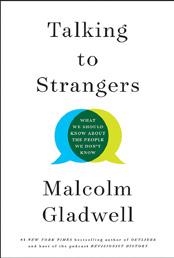
The Heart Behind the Stop: How local groups are making riders feel welcome at Frederick’s bus stops


The Art of the Exit Interview
The Venue, the Vault, and the Podcast: …how one Frederick-based business owner is going deep to help wouldbe entrepreneurs succeed


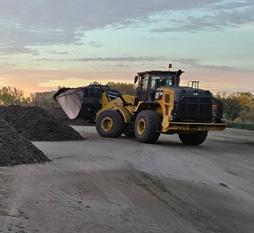









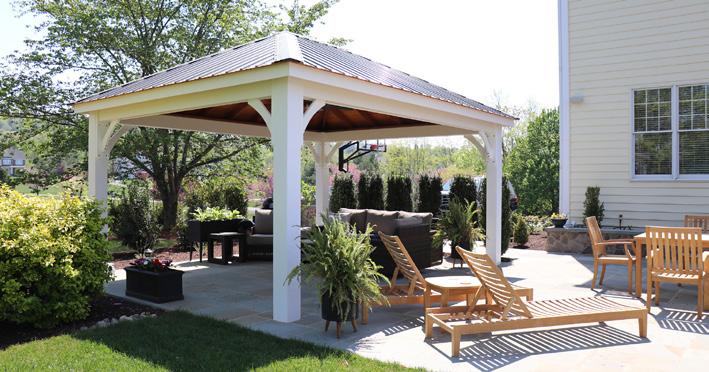









Where do executives and small business owners go to tune into the latest trends and cultivate inspiration? We asked a few of our contributors for their top picks in print and podcasts.

By Malcolm Gladwell
Before I read “Talking to Strangers,” I thought I was pretty good at reading people. I’ve always worked with a diverse mix of individuals, and I considered myself someone who could adapt and connect. But in this book Malcolm Gladwell flipped that confidence on its head — and it has changed how I communicate with almost everyone.
One of the most impactful lessons I took from the book is the importance of approaching each new interaction with a clean slate. Gladwell emphasizes that we often overestimate our ability to understand strangers, and this resonated deeply with me. I’ve learned to remind myself that I have no real insight into another person’s upbringing, experiences, or worldview — and that any assumptions I make can cloud the conversation from the outset. By choosing to lead with curiosity and a willingness to understand, I’ve seen how outcomes shift. When we assume good intent and listen first, disagreements often diminish. In many cases, we’re not at odds in our
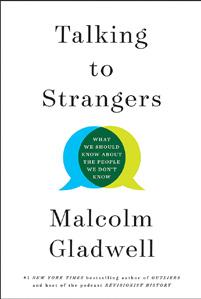
goals — we simply differ in how we hope to reach them. There is rarely a single "correct" path forward, but discovering shared purpose requires open-mindedness and patience.
Of course, not every situation allows for deep dialogue. In urgent or high-pressure environments, we don’t always have the time to communicate thoughtfully. That’s why developing a mindset of openness is so critical — it enables us to connect and respond more effectively, even when time is limited.
Ultimately, “Talking to Strangers” taught me that our default reactions, shaped by personal history and
bias, can hinder true understanding. To lead well and build meaningful relationships, we must actively seek perspective beyond our own. That means learning about the communities we serve, the people we work with, and embracing the truth that there are many valid paths to a positive outcome — not just our own.
Note: The audiobook version of “Talking to Strangers” is a must, as it incorporates audio clips and voice recordings of real-world examples.

Carmen Hilton is the Program Manager for the Community Development Department at the City of Brunswick, where she has served for five years. She brings over 15 years of experience in commercial real estate, property management, and program coordination. Carmen earned her MSARP (Main Street America Revitalization Professional) accreditation in 2025 and is dedicated to fostering sustainable growth and revitalization in Brunswick’s downtown and surrounding communities.
By Adrian Gostick and Chester Elton
The concept of something “new” typically evokes a sense of excitement, energy and enthusiasm, as well as high expectations.
As a new college president, I certainly feel all those emotions and more; however, it’s important to realize that new is often synonymous with “change,” and that concept often evokes very different emotions, including angst, uncertainty and fear.
In order to successfully and thoughtfully lead organizational change in any business, constituents must believe in the mission and vision set by the leader. Though not a book specifically targeting change management, “All In” is one of my all-time favorite guides. In it, Adrian Gostick and Chester Elton discuss the importance of establishing an organizational culture of belief – in leadership, mission and vision. The authors present seven strategies for achieving that culture, too.
Though published in 2012 – well before the tumultuous change imposed by a global pandemic – Gostick and

Elton effectively capture many of the central tenets necessary to mobilize and empower teams to move forward. Throughout the book, the authors cite examples of leadership strategies used by top CEOs to build a culture of belief, both good and bad, at major Fortune 500 companies including Pepsi and American Express. My favorite harkens to an approach that is both simple and direct, avoiding unnecessary fluff. It urges leaders to speak to the heart, a strategy I deploy often.
Walt Disney’s simple yet compelling vision to “Dream, Believe, Dare, Do” set a clear and powerful tone for his organization that continues to define the Disney enterprise today. Those four words define the culture and illuminate a vision for the future.
My copy of “All In” sits on my bookshelf an arm’s length away. I constantly pick it up and re-read sections when I need to regain focus. My book is filled with highlights, tabs and notes I’ve written to myself.
As a new college president preparing to lead a campus-wide strategic planning effort, I’m thinking like Disney: what four words would I use to describe my institution now? And, as we establish our strategic goals for the future, what four words do I want to use?

After serving as president in an interim role since July 1, 2024, Debbie Ricker, Ph.D, officially became Hood College’s 12th president in April. Ricker brings more than 30 years of experience as a published scientist, trusted administrator and higher education leader to her new role.
that
you walk out thinking, “We’ve got this.” Their guidance has helped us scale with confidence.
Beyond Honest Air, Brett and his team have also played a significant role in supporting my fiancée and I with our personal ventures and growing property portfolio.
Over time, Brett has become more than just a trusted advisor; he’s become like family. He genuinely cares, shows up when it matters, answers the phone when we have another crazy idea and brings clarity to complex topics.
They keep our numbers (and sanity) in check. If you’re looking for a team that truly goes above and beyond, BMC is the real deal.
–Andrew Lohr, President of Honest Air




Main Street Middletown is more than beautiful views. Our Main Street is full of businesses that started small, but have grown to serve generations of families, reach clients throughout the nation, and even world-wide! Our vibrant downtown is populated with niche businesses, restaurants, retail, and healthcare. Despite our rural views, we are conveniently located within minutes of downtown Frederick, major interstates, and an hour from Washington DC and Baltimore.
Main Street Middletown works to revitalize, preserve, promote, and support our fascinating downtown. We provide business support throughout the life of your business - from grand opening celebrations to milestone anniversaries, business mixers with technical assistance and educational opportunities, grants for building improvements, a robust marketing plan for the downtown, and special events that bring potential clients to your front door.




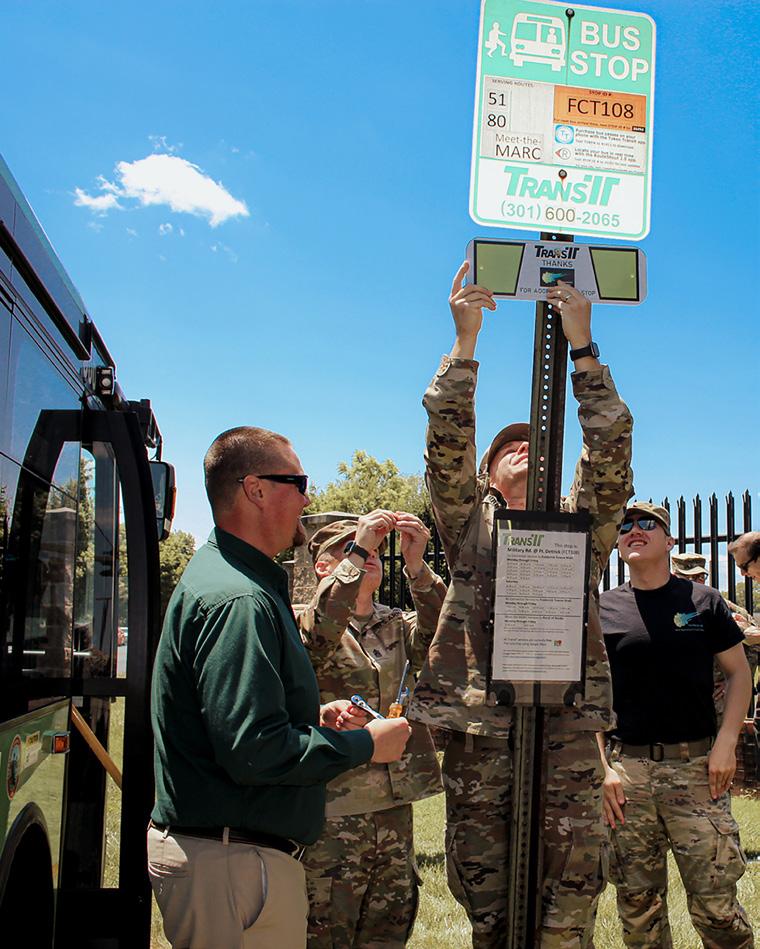
How local groups are making riders feel welcome at Frederick’s bus stops
Words and Photos By Mary Dennis

In Frederick County, bus stops are more than just places to wait; they’re part of people’s daily lives. People stand at these stops on their way to work, school, medical appointments, grocery runs, or visits with family and friends. The nearly 400 stops across the county hold countless stories and connect neighbors to each other.
For some, the bus stop is the first part of a busy day. For others, it’s the final stop before heading home.
Recognizing the important role these stops play, Frederick County Transit Services launched the Adopt-a-Stop Program in May 2023 to engage the community in caring for their local bus stops and shelters. It started with Better Opportunities for Single Soldiers at Fort Detrick adopting the first stop. Since then, the program has flourished. Today, it’s a thriving partnership of community organizations that take pride in keeping stops clean, safe and welcoming for all.
Local businesses, nonprofits, and community groups care for these important spaces, bringing more than just trash bags; they bring pride, ownership, and a shared sense of responsibility.



The nearly 400 stops across the county hold countless stories and connect neighbors to each other.
Here’s how it works: businesses, organizations, or even individuals can “adopt” a bus stop. They promise to check on it regularly, clean up litter, and keep it welcoming. In return, they get a sign that shows they’re part of something bigger than just transportation.
Clean bus stops do a lot more than look good. They encourage more people to use Transit, cut down on vandalism, and create a safer space for everyone. Most importantly, they show that someone cares, that our community looks out for one another. And when people see that, it inspires even more people to get involved.
With each new adopter, this program becomes more than just a maintenance project; it turns into a network of people who care about shared spaces, about showing up, and about making Frederick a little better every day.
From small businesses and family-run service companies to larger institutions and municipal departments, adopters represent a broad cross-section of Frederick County. Now, Transit is organizing the first-ever Adopt-a-Stop networking event. It’s a casual get-together for adopters to meet each other, share experiences, and celebrate the impact they’re making together.
There are plenty of opportunities for more adopters to get involved. Whether you’re a business owner looking to give back, a family hoping to make service part of your routine, or a community organization ready to take on a meaningful project, Adopt-a-Stop is an easy and impactful way to make a difference.
• Better Opportunities for Single Soldiers, at Fort Detrick
• Zeta Phi Beta Sorority, Inc. – Beta Alpha Sigma Zeta Chapter
• Frederick Health Hospital (2 shelters)
• Frederick County Division of Public Works
• Brunswick Main Street
• Frederick County Department of Social Services
• Out 40 Media
• United Way of Frederick County
• Town of Thurmont
• Active Mobility Advisory Committee, The City of Frederick
• Frederick Municipal Airport
• Twin Bears Bakery (2 bus stops)
• Top Shelf Supplies
• Top Quality Janitorial Services
• Cowork Frederick
Each of these 15 organizations has taken the time and effort to make sure their adopted stop is clean, cared for, and welcoming to every passenger who passes by. In total, they’re maintaining 17 stops and shelters, and their impact can be seen and felt across the county.

With each
becomes more than just a maintenance project; it turns into a network of people who care about shared spaces, about showing up, and about making Frederick a little better every day.

The Adopt-a-Stop Program is part of a larger vision to create a more connected, welcoming transit system. With ridership reaching more than 928,500 passengers in the most recent fiscal year, every bus stop matters more than ever. Clean, safe and cared-for stops help people feel confident choosing Transit, whether they’re commuting to work, heading to class, or simply running errands. Adopters play a big role in that experience. It’s all part of building a transit system that works for everyone, where people not only ride, but take pride in the journey.
Transit is about more than just getting from point A to point B. It’s about the connection between people, places, and possibilities.. 3
By Chris Slattery
It happens to almost everyone, somewhere between a letter of resignation and cake in the conference room: the exit interview.
“We started to see exit interviews rise in popularity early in the 1900s, when employers were genuinely interested about why employees left and how they could convince their top employees to stay — What could you learn from your employees on their way out the door?” explained Whitney Hahn, president and chief management consultant of Provoke Better, a leadership and management consulting firm headquartered in Frederick.
The practice started taking off in a more official capacity with the mid-century rise of human resources departments, she said, “And somewhere in the ’80s and ’90s, with the increase of a litigious society, HR departments and exit interviews became this way that companies could just ‘cover their butts,’ particularly when it was a contentious exit.”
In order to avoid reputation-ruining gossip and even lawsuits, she noted, some companies would incorporate non-disclosure agreements into the exit interview process or hold out on severance packages until former employees agreed to keep negative opinions to themselves.
“It’s really become less effective when it’s conducted that way,” Hahn added.

“And it’s not helping anybody. It’s not helping the company learn how to keep top performers, it’s not helping the employee provide honest, constructive feedback and set themselves up for their next position wisely. I think it’s broken.”
And yet, according to pLink founder and CEO Gretchen Pisano, there’s a great deal to gain from an exit interview that’s conducted positively, professionally, and with the utmost care.
“It’s an investment in both culture and reputation,” says Pisano, who works with business leaders to cultivate the kind of sustainable excellence that benefits companies large and small. “When you do an exit interview and you ensure it’s a positive offboarding experience, you’re sending a big message,” she explained. “You’re reinforcing that culture of trust and mutual respect, because you’re


“When you do an exit interview and you ensure it’s a positive offboarding experience, you’re sending a big message. You’re reinforcing that culture of trust and mutual respect, because you’re demonstrating to the exiting employee that you’re curious about their experience, and you’re demonstrating to the rest of the organization that you’re open to feedback.”
- Gretchen Pisano, Founder and CEO pLink



demonstrating to the exiting employee that you’re curious about their experience, and you’re demonstrating to the rest of the organization that you’re open to feedback.”
In terms of culture, she noted, the exit interview demonstrates the way a business values its employees and works to make improvements where necessary. From a reputation standpoint, the process can shape the way the exiting employee perceives their experience and talks about the company once they’ve parted ways. This is especially important to small companies, which may have a bigger footprint than larger corporations because of their proximity to customers and suppliers and their visibility in the community.
“One of the values of an exit interview is that you’re going to get the most candid feedback because people have nothing to risk,” Pisano said. “Smaller companies, especially family-owned companies, benefit from that because they might not have the processes in place that are standardized in bigger companies.”
At pLink Pisano works with many large companies who may offboard more than 50 people a year. In those cases, she says, it’s important to collect feedback from exit interviews, review responses, and use the information to make improvements to the corporate culture as necessary.
“With enough feedback you can look for themes,” she said. “For example, if you have one person who complains bitterly about a particular leader, you don’t actually know if you’ve got a problem — sometimes feedback can be more about the person responding than what they’re complaining about.” If collected feedback over time points to a particular leader or situation, however, “It’s time to have a conversation.”
Whatever conversations it inspires, Barbara Mason believes all businesses should make the exit interview a priority.
“It’s a relatively small-cost way to get feedback on your company, its practices, and how things are going,” says Mason,

“In the past exit interviews had a very standard format of four or five questions. In today’s world? I think it should be an ‘exit conversation,’ not an exit interview. The word ‘interview’ denotes formality — you’re on the spot. An exit conversation looks through a different lens.”
- Barbara Mason, CEO
Career Pathways Consulting

a human resources professional and consultant who became CEO of Career Pathways Consulting after 20 years in the HR world. She likens the exit interview to the comment card restaurants hand out to diners: “Studies show that people only comment if they have a really good experience or a really bad experience.
“You’re going to hear from people who had a really good time at your company and felt they received some value,” she added, “but you’re also going to hear from people who did not enjoy your company.”
And that’s perfectly fine, she said: “I think both perspectives are good to hear, so you can make course corrections and change things for the better.”
She does, however, tout the power of “stay interviews,” a more proactive way of gauging the satisfaction of employees to ensure retention — a sentiment that’s shared by Hahn — and Mason encourages her clients to keep open the lines of communication using performance reviews, roundtable discussions, and other communication conduits. And she’d like the exit interview to get a name change.
“In the past exit interviews had a very standard format of four or five questions,” Mason said. “In today’s world? I think it should be an ‘exit conversation,’ not an exit interview. The word ‘interview’ denotes formality — you’re on the spot. An exit conversation looks through a different lens.”
It’s a lens that may work especially well as Millennials, members of Generation Y born during the mid-’80s to late ’90s, become more and more influential in the workforce.
“What the Millennials value is not what previous generations valued,” Mason said. “There are a ton of companies that have been slow to transition their policies, their practices, their culture to stay in line with what the values are today for those Millennial employees.”
And as it turns out, the conditions Millennials insist upon — from flexibility about remote work to ethical corporate policies — tend to be beneficial to all employees, regardless of what generation they identify with.
“To retain high-performing talent at any age, at any stage in their career, employees
need to see a mission connection and feel like they have a purpose at their job,” Hahn said. “They need to be a ‘culture fit,’ they need to see what their success path is this quarter, next year, five years from now.
“Where we work has this outsized influence on so many aspects of our lives,” she added. “It’s a huge decision. Everyone wants to be the hero of their own adventure.” 3
The
Venue, the Vault, and the Podcast …how one Frederick-based business owner is going deep to help would-be entrepreneurs succeed.
By Chris Slattery
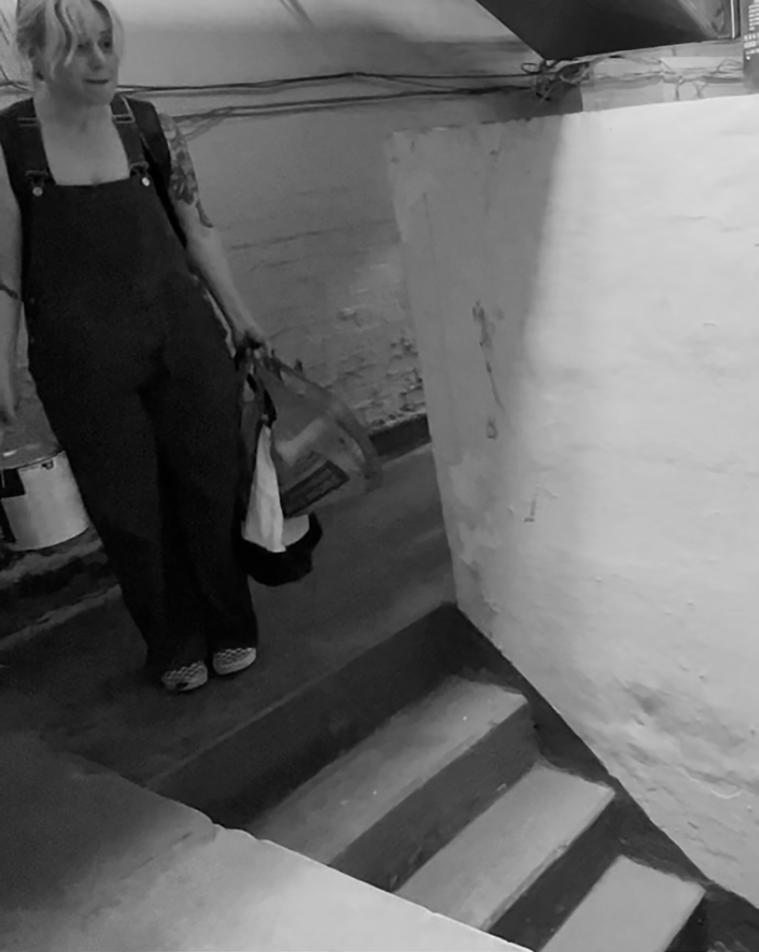



She’s a former broadcast journalist, a wildly successful entrepreneur, a cancer survivor, a CEO, and a mom. But right now, Katie Dear’s career is in the basement — literally Dear, 40, has launched a podcast called “The Venue Underground,” recording in a Cold War-era fallout shelter in the heart of Downtown Frederick. In it she shares the ups and downs, trade secrets and best practices she’s discovered on the road to success.
“I have experience turning a dream into something that’s real. That’s why I wanted to start the podcast,” says Dear, who founded the wedding venue company Fêtewell in 2016.
As Fêtewell CEO Dear oversees four event venues, two in Maryland and two franchises in Georgia. Her Frederick location is Citizen’s Ballroom on East Patrick Street, which transformed a historic bank building into a chic and modern event venue in 2021. But her career path started on a different stage.
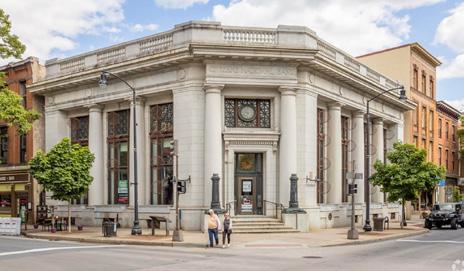
“I studied broadcast journalism at the University of Maryland,” said Dear, who began as a morning news producer, “going into work at 2 in the morning and working 50 hours a week.” Diagnosed with thyroid cancer while she was pregnant with her first child, Dear decided to reevaluate the shape she wanted her life to take.

“I created the playbook for myself, and now I want to help others,” she said. “Not just in the venue industry, but anybody who’s sitting at home, has some kids, has a dream, and maybe is thinking, ‘There’s no way I can ever make this a reality.’ ”
- Kate Dear, CEO Fêtewell




“I realized that my time is precious and valued,” she recalled. “It really was like a rebirth for me in terms of, ‘How do I want to spend my time? Do I want to be defined by my career, or what I do for my family?’”
Familiar questions for most parents, sure, but particularly intense in the midst of a health crisis. Dear began “reconsidering everything,” and opted to be a stay-at-home mom while eventually adding another child and an MBA from Carnegie Mellon to the mix.
“That’s when I decided to start my own business.”
Dear had grown up in Poolesville, in Montgomery County, and spent her middle school years living abroad with her family near Southampton, England. The experience left her with an indelible love for “old buildings and historic properties,” which in turn led her to the first unique venue Fêtewell would call home, the Main Street Ballroom in Ellicott City.
“I had two toddlers, I’d been home for a while, and I’d gotten my MBA, which wasn’t focused on starting a business, but it gave me the confidence — the audacity! —to be able to go up to landlords and property owners and say, with no outside investors, ‘I’d like to start a venue here.’”
In addition to audacity, Dear brought tenacity to the table, steering the company through devastating Ellicott City flooding in 2018 and the 2020 pandemic. Now, with Fêtewell firmly entrenched as an event venue and pulling in seven figures annually, the entrepreneur is taking stock and giving back.
“I created the playbook for myself, and now I want to help others,” she said. “Not just in the venue industry, but anybody who’s sitting at home, has some kids, has a dream, and maybe is thinking, ‘There’s no way I can ever make this a reality.’
“I have experience making a dream into something real; that’s why I wanted to start the podcast.”
Dear’s social media accounts’ followers had skyrocketed as she documented renovations at Citizen’s Ballroom, so she had 1 million-plus followers ready to receive content. And the venue’s basement holds a fallout shelter, complete with Cold War symbols and ink barrels, that no one ever used.

Dear believes that the secret to not just surviving but thriving in a people-centric business is the ability to adapt quickly.






“I was down there one time organizing storage and thinking, ‘What can I do with this space?’ “Because as a businessperson I want every square foot to bring me revenue.”
One sleepless night later, the seeds of “The Venue Underground” podcast were sown. Dear organized the space and recruited her two managers, Gemma Harding and Rachel Nyanjom, to discuss the art of getting a business off the ground and share behind-the-scenes stories from the wedding industry.
“It’s unique that we have this all-women team and this million-dollar business,” Dear said. “It’s a small business, but we’re doing seven figures a year, and at this point we just want to share our knowledge.”
Dear believes that the secret to not just surviving but thriving in a people-centric business is the ability to adapt quickly.
“We’re a small and nimble team,” she explained. “We have that personal relationship with clients, trying to find solutions that work for as many people as possible.
“Hey,” she noted, “Amazon used to be a bookstore!” 3

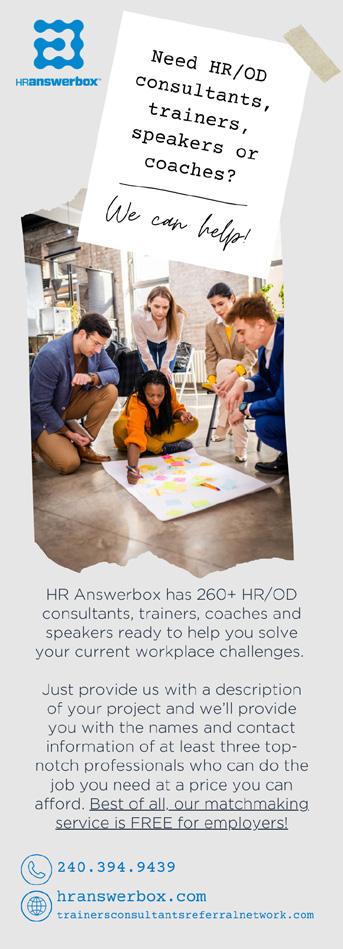
By Amanda Haddaway
After 25 years in human resources, I’ve learned that the most successful companies don’t just operate within their communities, they actively invest in them. What started as corporate social responsibility has evolved into a strategic imperative that directly impacts workplace culture, employee engagement, and business outcomes.
Smart business leaders recognize that community partnerships serve as powerful talent management tools. When employees participate in meaningful community initiatives, they develop skills that directly translate to workplace performance. I’ve witnessed marketing professionals hone their project management abilities while organizing charity drives, and seen introverted engineers emerge as confident leaders through mentoring programs at local schools.
These partnerships create what I call “purpose-driven engagement.” Employees who believe that their work extends beyond profit margins consistently demonstrate higher performance levels and significantly better retention rates. The reason is simple: people want to work for organizations that reflect their values and contribute to something larger than themselves.
The key lies in selecting partnerships that align with both your business objectives and employee interests. Start by surveying your workforce to understand what causes resonate most deeply. Manufacturing companies could partner with technical schools to address the skills gap while providing employees with mentoring opportunities. Professional services firms often find success with financial literacy programs that leverage their expertise while developing junior staff presentation skills.
Successful partnerships require structure and clear objectives. Establish specific goals beyond goodwill, such as developing leadership capabilities, improving crossdepartmental collaboration, or enhancing your brand. Create employee volunteer committees with representatives from different departments. This approach fosters internal networking while ensuring diverse perspectives guide your community engagement strategy.




Community partnerships deliver measurable business results when properly executed. Track metrics that matter to your bottom line: employee satisfaction scores, internal promotion rates, recruitment costs, and voluntary turnover. Companies with robust community engagement programs consistently report higher employee referral rates. Your best recruitment tool becomes your engaged workforce.
Consider implementing skills-based volunteering that addresses specific development needs. When your finance team provides pro bono bookkeeping services to local nonprofits, they’re gaining exposure to different business models while strengthening analytical skills. Marketing teams developing campaigns for community organizations sharpen their creativity while building portfolios that attract top talent to your company.
The biggest mistake I see is treating community partnerships as a checkbox exercise. Superficial involvement breeds cynicism among employees who can spot inauthentic engagement from a mile away. Avoid partnerships that feel forced or misaligned with your company culture.
Another critical error is failing to provide adequate time and resources. If you’re asking employees to volunteer on their own time exclusively, you’re missing the engagement opportunity. Companies that offer paid volunteer hours or team-building days focused on community service see significantly higher participation and employee satisfaction.
The most successful community partnerships become integral to your company’s identity. They influence hiring decisions, shape onboarding experiences, and create shared stories that bind teams together. New employees often cite community involvement as a deciding factor in joining the organization.
Start small, but think strategically. Choose one meaningful partnership and execute it exceptionally well before expanding. Focus on long-term relationships rather than one-time events. The nonprofit organizations that become your ongoing partners will become your strongest advocates in the community, enhancing your reputation as an employer of choice.
Community partnerships aren’t just about giving back; they’re also about building forward. When done strategically, they create workplaces where employees thrive, cultures that attract top talent, and businesses that become indispensable parts of their communities. In today’s competitive talent market, that’s not just good citizenship — it’s smart business.
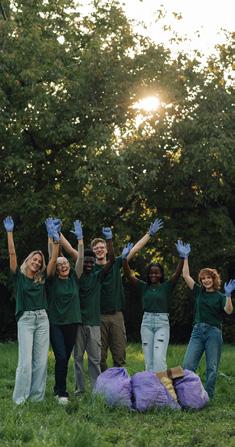

Amanda Haddaway is the managing director of HR Answerbox, a local HR advisory firm specializing in small and mid-size businesses. She helps companies develop strategic HR practices that drive employee engagement and business growth.

SPONSORED CONTENT















By Naomi Pearson

Frederick County’s thousands of businesses produce a lot of waste — from paper to electronics, to food and construction debris.
Frederick County’s master plan, adopted in 2019, titled “Livable Frederick,” includes the county's waste management plan. It encourages collaboration and coordination between local government and local businesses to support responsible disposal and diversion practices, in compliance with Maryland regulations.
It’s as simple as working toward creating less waste, and then making sure the waste that is created goes to the correct location for proper disposal, reuse or recycling.
The county provides multiple waste disposal resources for businesses large or small. It provides information on how to reduce and properly discard waste, including digital devices and related waste products.
The Frederick County Division of Solid Waste and Recycling operates a landfill, transfer station, and recycling facility at 9031 Reichs Ford Road. On July 1, the division launched a more robust lithium-ion battery recycling program and expanded its textile recycling program with drop-off bins and infrastructure upgrades.

An additional service available is a yard waste program, where customers can drop off branches, weeds, and other materials that then get recycled into mulch and compost.
Recycling drop-off can be done for a variety of items, including textiles, electronics, certain types of rechargeable batteries, and tires.
The county also offers business waste audits, consultation, and information about waste management and recycling, and referrals to services that may better serve business waste disposal and diversion needs.
The county does not provide trash or recycling pickup for businesses, and while it does not endorse any particular business that facilitates waste disposal and diversion, the DSWR can provide a list of waste disposal providers or recycling services and organizations that purchase,
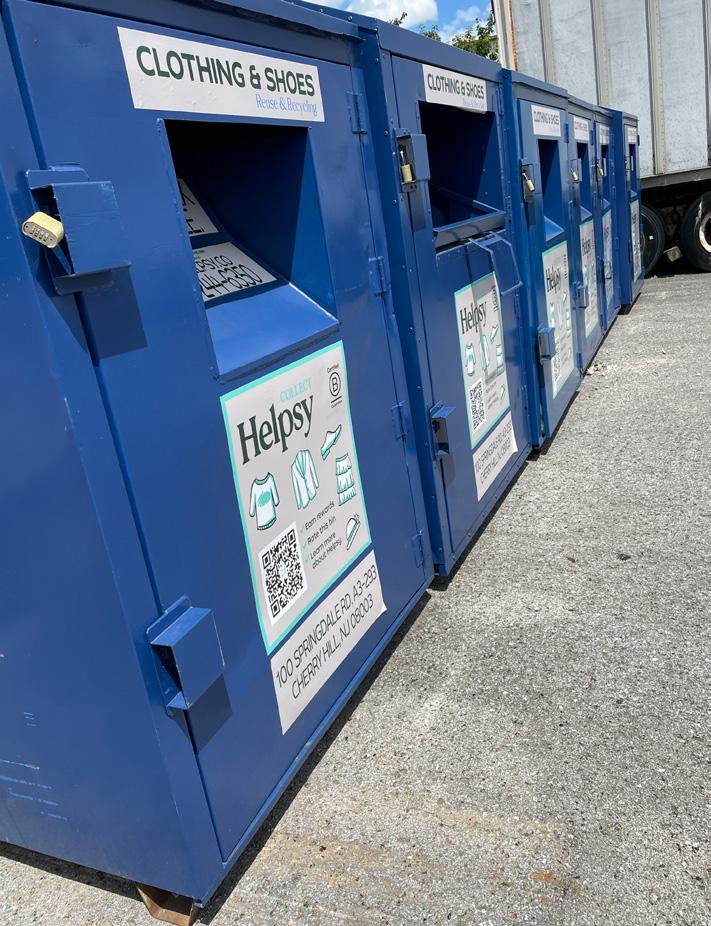

“If you're launching a new business in Frederick County, it’s wise to include waste management in your initial budget and operations planning, both for cost savings and environmental compliance.”
- Lara Fritts Director, Frederick County Division of Economic Opportunity
resell or reuse unwanted goods, customized to a business’s needs and circumstances.
The DSWR encourages business owners to contact them to discuss business waste management, reduction, and recycling; no business is too large or small to make that call.
The life sciences companies that have set up shop in Frederick use a lot of plastics, many of which have unusual shapes that don’t clearly conform to the "bottles, tubs, jars, and jugs" guidelines for plastic recycling, according to DSWR communications manager Paul Varga. The DSWR can confirm with the Materials Recovery Facility what is acceptable and provide appropriate guidance.
Kip Kelley, DSWR commercial recycling program analyst, tells of a greenhouse owner who was filling three roll-off dumpsters a week at a cost of $6,000 each month, and requested assistance in determining how to reduce both the amount of waste and the cost to dispose of it. Together they determined that much of the waste could be diverted through recycling and composting via county services, and the owner reduced the business’s costs to $400 per month, using only one eight-yard dumpster for nonrecyclable solid waste.
Beyond the resources provided by the Frederick County DSWR, other county departments, such as the Office of Economic Development, or the Division of Energy and Environment can assist and advise businesses of every size, at every stage of development with a waste management plan.
“Waste management, including recycling, is often a component of a business’s planned expenses. In Frederick County, solid waste isn't a fixed charge, but an operational cost that businesses control through active waste reduction and recycling measures,” said Lara Fritts, director of the Division of Economic Opportunity.
“If you're launching a new business in Frederick County, it’s wise to include waste management in your initial budget and operations planning, both for cost savings and environmental compliance,” Fritts said. “To get started it is important to connect with waste haulers to set up commercial trash/recycling accounts. Then coordinate with FCOED for all your site, permitting, and workforce needs, to round out your business plan.”
The City of Frederick collects and disposes of up to 320 gallons of trash
• Waste management can be a community effort that businesses can participate in. In 2024, 426 volunteers from local businesses and faith organizations, families and friends collected more than 817 bags of trash from roadways and streams, and cleaned up more than 12 miles of roadways in the City of Frederick, according to the city’s 2024 annual report.
• Waste management plans can be implemented at every level of an organization, developing a company culture of waste reduction and diversion. Setting up recycling bins helps, but to make a big impact, consider equipment refurbishment rather than replacement. Do it yourself or seek out local businesses to help. Otherwise, try to sell, donate, or give it away instead of putting it directly to the trash..
• There are two main types of recycling: singlestream or commingled. Frederick County uses commingled.
- ➢Shredded paper is not accepted by the county for recycling. There are ways to reuse and recycle it if no staples, paper clips, or plastic film have been shredded into it. Plastic bags are also not accepted, nor can recyclables in plastic bags be accepted. Plastic bags containing recyclables can be emptied, but the bag must be recycled elsewhere, such as at supermarkets that have bins for accepting plastic bags and bags of bags.
- Recyclables must be correctly sorted (and clean-ish) for many recycling programs to work. Incorrectly sorted items, those containing residue, or items that can’t be recycled by the operation system can contaminate the batch and result in ALL of a load ending up in a landfill instead.
• The State of Maryland requires each county to report its local recycling activity each year, to generate each county’s overall recycling rate. Frederick County can report recycling that comes through residential waste systems, but since commercial recyclables are usually handled by private vendors, that information can’t be tracked unless the business or organization reports it. The DSWR website has a link to the Maryland Department of the Environment’s survey to help accurately measure annual recycling activity. If you don't have exact numbers, a good-faith estimate is acceptable. TFor more information and a link to the survey visit frederickcountymd.gov/4038/Maryland-Recycling-Act.
Long-time McCutcheon’s employee Lisa Armentrout said that the company sells its empty cardboard barrels, small food-safe buckets and other containers, while a local farmer picks up cider pressing mash to feed to his livestock.

by Naomi Pearson

Beyond the resources provided by the Frederick County DSWR, other county departments, such as the Office of Economic Development, or the Division of Energy and Environment can assist and advise businesses of every size, at every stage of development with a waste management plan.
for businesses within the city, as well as recycling for businesses in the Downtown Commercial Business District, while businesses outside the district are responsible for handling their own cardboard and other recycling.
Local municipalities may have their own programs. For instance, Frederick County partners with the Town of Walkersville on a joint recycling program that provides a dumpster for recyclables twice per month with an attendant for supervision and assistance for county residents and businesses.
Some local businesses provide alternative diversion services for waste products the county does not accept, such as Key City Compost, now part of Rockville-based Compost Crew. This business allows commercial entities to
recycle food waste that Frederick County’s compost service cannot accept.
Some businesses have reduced waste disposal costs, profited from what normally could end up in a landfill, and also benefitted the community by selling or giving away their waste products. Some businesses sell their used wooden pallets or set them out for free for anyone who wants them.
Long-time McCutcheon’s employee Lisa Armentrout said that the company sells its empty cardboard barrels, small food-safe buckets and other containers, while a local farmer picks up cider pressing mash to feed to his livestock, another example of full-circle support for the County’s waste management master plan while helping the community. 3
Frederick County Division of Solid Waste and Recycling frederickcountymd.gov/5634/SolidWaste-and-Recycling
DSWR recycling information frederickcountymd.gov/1764/ Recycling-Information
Office of Recycling staff & contacts frederickcountymd.gov/3573/Officeof-Recycling-Staff-Contacts
City of Frederick Commercial Trash cityoffrederickmd.gov/368/ Commercial-Trash
Livable Frederick frederickcountymd.gov/7977/LivableFrederick-Planning-and-Design
Frederick County Office of Economic Development www.discoverfrederickmd.com
Frederick City Department of Economic Development businessinfrederick.com

X-energy Reactor Company, LLC, a leading developer of advanced small modular nuclear reactors and fuel technology for clean energy generation, recently announced the purchase of a property in Frederick that will house the company’s newest integrated test and training facility to validate key components and systems of X-energy’s Xe-100 advanced small modular reactor for commercial deployment.

J. Clay Sell, X-energy CEO

Governor Wes Moore announced on July 30 that the nuclear reactor and fuel company is reinvesting in its Maryland workforce with expansions in two counties.
The company, which currently operates from two spaces in Rockville, is consolidating its headquarters to a 125,000 square-foot facility at 9801 Washingtonian Boulevard in Gaithersburg. X-energy will retain its 260 full-time employees at this new site, with plans to create at least 525 new jobs over the next six years.“
X-energy’s expansion in Montgomery and Frederick counties is an investment in Maryland and in our state’s vital energy and sustainability sector,” Moore said. “While X-energy works to power our future, we will work hand in hand to make sure all Marylanders feel the benefits of clean energy for years to come and enhance our competitive edge across the region.”
In addition to the headquarters expansion, X-energy purchased a building at 7201 McKinney Circle in Frederick to host the company’s first integrated test and training facility. After it is fully renovated, the 90,000 square-foot building will house facilities for non-nuclear testing and prototyping of critical reactor components to ensure they perform safely and reliably under real-world conditions before fullscale manufacturing and deployment. The facility will also provide training for reactor operators and maintenance technicians using a state-of-the-art, full-scale plant control room simulator, similar to the advanced training simulator currently operating at X-energy’s Plant Support Center, also in Frederick.“
X-energy was founded in Maryland, and we are proud to call this state our home as we enter a period of unprecedented growth,” said X-energy Chief Executive Officer J. Clay Sell. “We look forward to working with Gov. Moore and his team to build on the state’s long history of nuclear innovation by making Maryland a national leader in nextgeneration nuclear technology.”
X-energy is a leading developer of advanced small modular nuclear reactors



“These new facilities will play a major role in enhancing the company’s clean energy efforts, and with employees rotating between Gaithersburg and Frederick, X-energy’s impact will be felt all throughout the Capital Region.”
- Harry Coker, Jr. Secretary, Maryland Department of Commerce

and nuclear fuel technology for clean energy generation, partnering with major megaproject developers and hyperscalers to deliver clean, reliable energy at scale. The company’s first commercial Xe-100 plant is being developed in partnership with the Dow Chemical Company on the Texas Gulf Coast through the U.S. Department of Energy’s Advanced Reactor Demonstration Program. X-energy has also partnered with Amazon and Energy Northwest on a second Xe-100 project in Washington state. As part of its collaboration with Amazon, X-energy has committed to deploying up to 5 gigawatts of new nuclear capacity by 2039, the largest commercial deployment of small modular reactors announced to date.“
As X-energy focuses on providing solutions for the clean energy industry, the company is recommitting to its local workforce with two significant investments in Maryland,” said Maryland Department of Commerce Secretary Harry Coker, Jr. “These new facilities will play a major role in enhancing the company’s clean energy efforts, and with employees rotating between Gaithersburg and Frederick, X-energy’s impact will be felt all throughout the Capital Region.”
To assist with project costs, the Maryland Department of Commerce is working to approve two conditional loans totaling $2.35 million through Advantage Maryland. Montgomery County is providing up to $500,000 through its Job Creation Fund Program and up to $150,000 through its MOVE Grant Program. The company is also eligible for other state and local tax credits.
“We’re excited that X-energy is doubling down on Montgomery County,” said Montgomery County Executive Marc Elrich. “This expansion is a win for our residents, bringing hundreds of good-paying jobs and strengthening our position as a center for innovation in clean energy and advanced technology. We are committed to supporting industries that help address climate change while creating more opportunities for our highly skilled and diverse workforce. I appreciate Gov. Moore’s leadership in making sure Maryland remains competitive for these


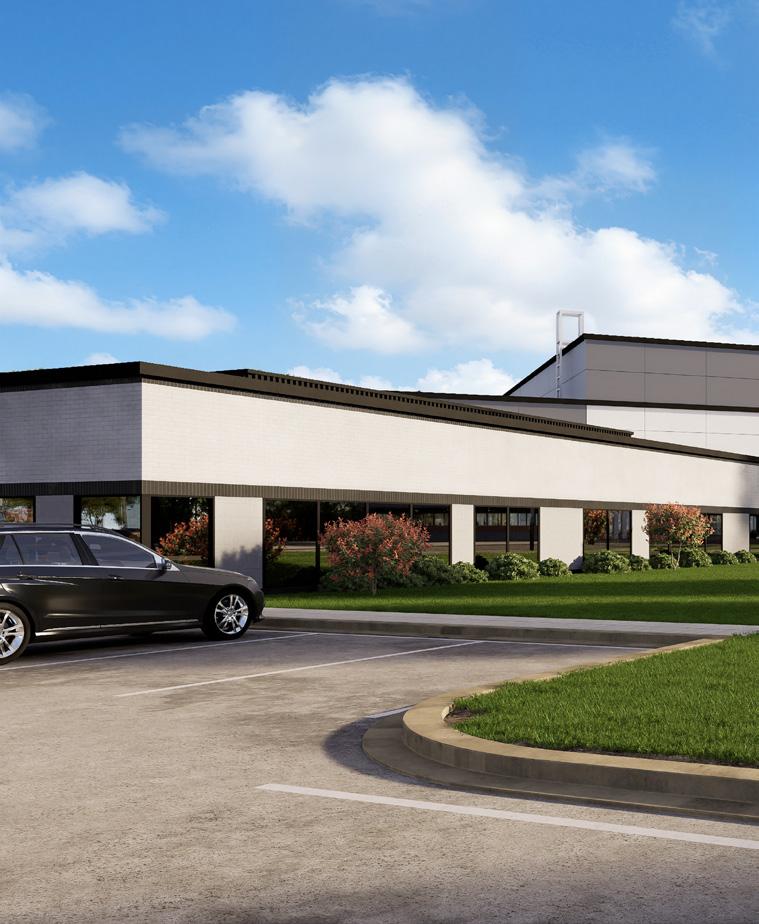
“We’re proud to welcome X-energy’s latest expansion here in Frederick County. Their cutting-edge work in advanced energy technology not only strengthens our region’s innovation economy but also positions us at the forefront of clean energy solutions.”
- Lara Fritts Director, Frederick County Division of Economic Opportunity
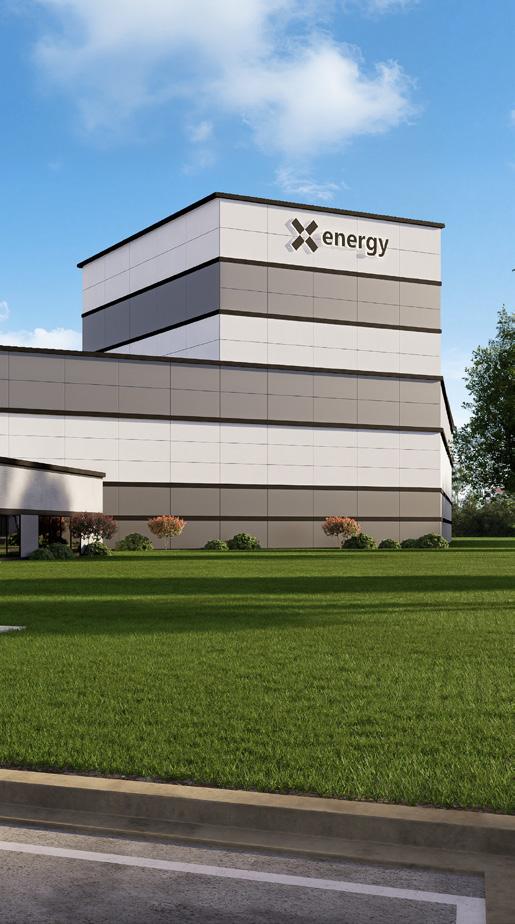
types of transformative projects, and I want to thank X-energy for choosing to keep growing right here in Montgomery County.”
"We are thrilled to welcome X-energy's expansion in Frederick. This significant investment strengthens our tech sector and brings valuable job opportunities to our community,” said Frederick County Executive Jessica Fitzwater. “X-energy's innovative work in nuclear reactor and fuel design aligns perfectly with our commitment to fostering cutting-edge industries and sustainable growth in Frederick County."
“We are thrilled that X-energy has chosen to remain in Montgomery County,” said Montgomery County Economic Development Corporation Board Chair Elana Fine. “This is the result of a strong partnership with X-energy, built over many months of close collaboration. Together we aimed to align their growth goals with the unique assets and incentives Montgomery County offers—including the MOVE Grant and the Montgomery County Job Creation Fund. This decision reflects the shared commitment to innovation that defines our business community.”
“We’re proud to welcome X-energy’s latest expansion here in Frederick County. Their cutting-edge work in advanced energy technology not only strengthens our region’s innovation economy but also positions us at the forefront of clean energy solutions,” said Frederick County Division of Economic Opportunity Director Lara Fritts. “This investment underscores our county’s commitment to supporting companies that are solving global challenges and creating high-quality jobs for the future.” 3
We believe in making a difference where it matters most—right here in our community. Our commitment to community empowerment has inspired us to support two impactful local initiatives: sponsoring a STEM Center in Carroll Manor Elementary School and joining hands with Habitat for Humanity to build safe, welcoming homes for families at the West All Saints Street Project.
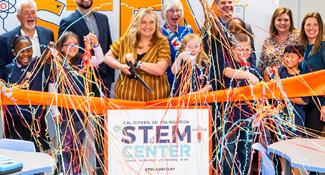
Through our volunteer work with Habitat for Humanity, we’re building hope. Our team members actively contributed their time and expertise to construct affordable, safe, sustainable homes, offering families the stability they need to thrive.

Our STEM Center sponsorship is about more than funding; it’s about sparking a lifelong love for science, technology, engineering, and mathematics. This space provides young minds with hands-on learning experiences, helping children imagine the future and feel empowered to shape it.

For us, investing in the community is a promise to support and uplift the people around us. Together, we’re nurturing the builders and dreamers of tomorrow and creating spaces for every family to feel at home.
Discover more about our efforts at rowanfrederick.com and let us know your thoughts—we’d love to hear from you!
By Eric Anderson
In Frederick County, we know a thriving community is built on more than bricks and mortar. It is built on a shared commitment, with neighbors, businesses, and nonprofits working together so that everyone has a safe, decent, and affordable place to call home.
That is why our partnership with Rowan Digital Infrastructure matters so much. At first glance, a company developing hyperscale data centers may seem far removed from Habitat for Humanity’s mission to bring people together to build homes, communities and hope. In truth, our work is deeply connected.
As Rowan continues to invest in Frederick County, bringing jobs, tax revenue, and technology infrastructure, the company is also investing in the people who keep our community running. Teachers, nurses, first responders, tradespeople, and service workers are the backbone of our economy, yet many struggle to find housing they can afford close to where they work.
The challenge of affordable workforce housing has been a growing concern for many years. If we want Frederick to remain a place where opportunity is within reach, we must grow housing alongside economic development. That is where community partners like Rowan can help make a difference.
Rowan understands that sustainable growth means investing in both infrastructure and people. As a founding member of Habitat Frederick’s Carter Club, a group of donors committed to transformational, long-term impact, Rowan is helping us create more affordable homeownership opportunities for local families. Their support is already at work on our West All Saints condos, where we are restoring historic homes to create stable housing in the heart of Frederick.
And it is not just about financial contributions. Rowan team members have rolled up their sleeves and joined us on the job site. This year, they will be out on multiple volunteer days, helping us swing hammers, paint walls, and putting the finishing touches on new homes alongside future homeowners. These moments show the connection between industry and community in a tangible way, where a company’s commitment contributes to a safe, welcoming home for a local family.
When families can afford to live where they work, the whole community benefits. We see stronger schools, reduced traffic congestion, a more stable workforce, and vibrant neighborhoods. Businesses can attract and retain talent, while families gain the stability to put down roots and contribute to their community for generations.
We see Rowan not just as a donor, but as a partner in building the kind of Frederick County we all want to live in. The company has shown a willingness to listen, learn, and invest in solutions that meet the needs of the whole community, not just today, but for years to come.
As Frederick County continues to grow, we will welcome new industries, residents, and opportunities. Growth must be paired with housing that meets the needs of the people who make our community strong. No single organization can solve this challenge alone, and it will take collaboration among government, nonprofits, businesses, and residents.
We are grateful to have Rowan Digital Infrastructure at the table and in the field with us. Together, we can build a stronger, more inclusive Frederick County.



SPONSORED CONTENT

Words and Photos By Shuan Butcher
Bob Black is one of the busiest people in Frederick County. He happens to also be one of the nicest.
He, and his sister, Pat, own Catoctin Mountain Orchard. Thousands of vehicles that travel along U.S. Route 15 in Frederick have made the wise decision to stop at the orchard’s farm market located on the west side of the fourlane highway just north of Thurmont.
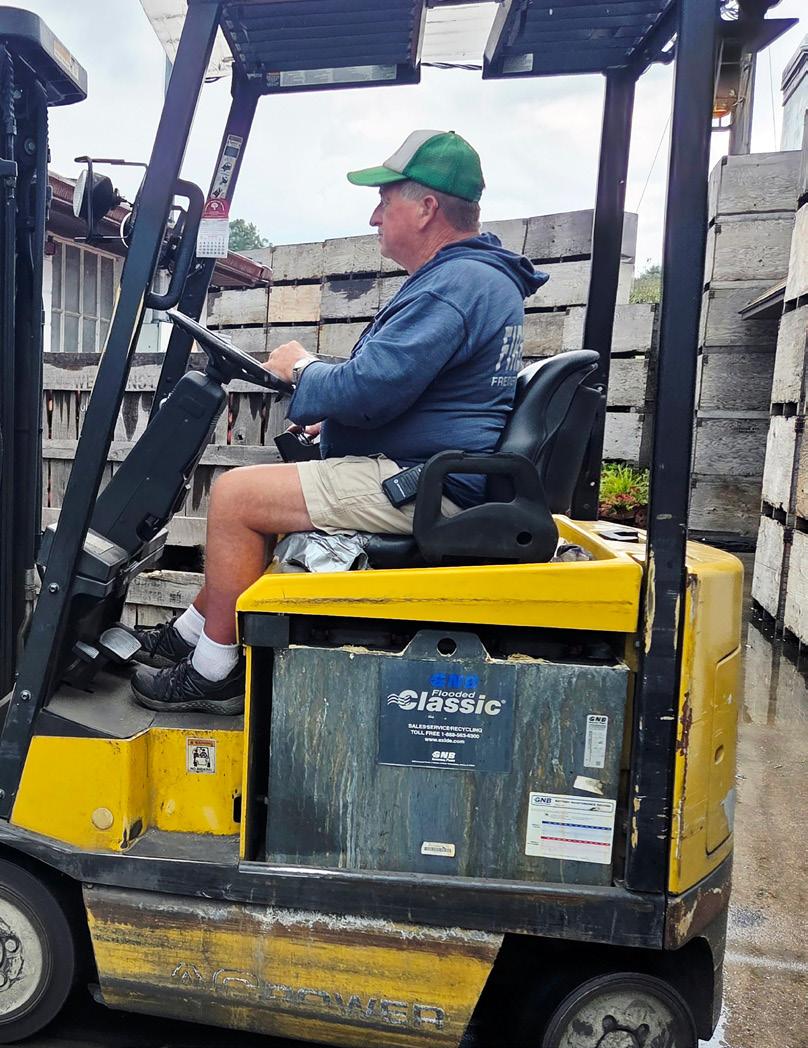
The current iteration of Catoctin Mountain Orchard started back in 1948, when the late Harry Black, Bob and Pat’s father, started working with Ira Kelbaugh, thenowner of the land. Harry Black purchased the farm in 1961 and now the fourth generation of the Black family works there, too.
The orchard is truly one of my favorite places to visit. We love their apples, but you can’t walk away with just one thing when you shop at the farm market. They’ve got homemade pies, a large variety of in-season fresh fruits and vegetables, canned and jarred goods, and so much more.
Catoctin Mountain Orchard is one of Frederick County’s prime agritourism destinations, with lots of pick-your-own opportunities throughout the year, including fruits and flowers.
I recently had the opportunity to spend the day with Bob Black. (Finding a time to do so wasn’t easy, as the guy can be anywhere at any given time, such as at an auction bidding on a new freezer truck or tomatoes, or making a delivery.)
On the day we caught up, Bob was at the farm market. When I arrived, he was organizing recently picked produce, a constant process of moving things around. The market has a 33 degree freezer that helps the fresh produce last longer. They also have a 55 degree freezer, which allows things to warm up more slowly before heading to the shelves.
Providing a quality product to the customer is important to Bob: “It has to taste good,” he said. “It may be pretty, but if it lacks flavor and you don’t buy it why am I going to grow it?”
Bob is focused on growing the produce that tastes good and that people want. That means experimenting or buying produce that grows elsewhere. For example, the Blacks’ cherries were ruined and eaten by birds this year, so he had to bring in some from Washington state.
On the day I visited, an order for 20 half bushels of plums came in from a CSA in
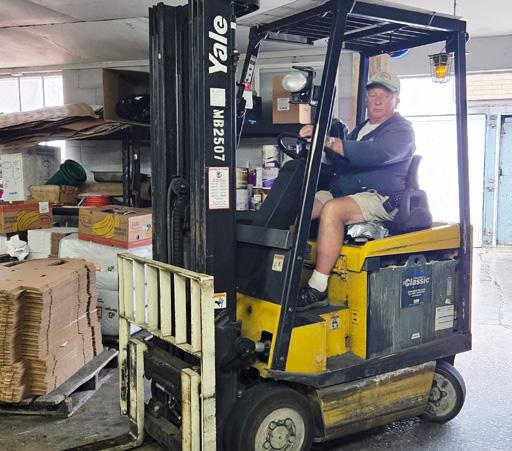
On the day we caught up, Bob was at the farm market. When I arrived, he was organizing recently picked produce, a constant process of moving things around.
York, Pennsylvania. So the crew immediately got busy grading the plums to fulfill it. The crew is composed mainly of skilled workers from Mexico, here legally to support the farm operations.
The crew at Catoctin Mountain Orchard is led by Guadencio Gonzales, who has been with the farm for about 35 years. Guadencio became a U.S. citizen 10 years ago.
The crew graded the plums by hand, checking the weight, size, color and external quality. They made sure the plums were mature, but not overripe or soft and that they were free from damage or decay while also picking off the stems if necessary.
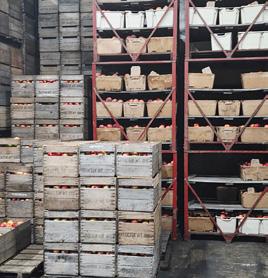

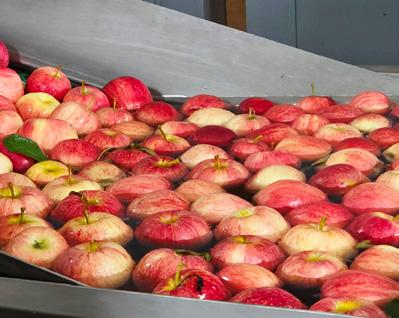

Catoctin Mountain Orchard grows nearly two dozen other fruits and vegetables on nearly 85 acres. I was able to get a tour of the farm and the views from the top of the hill are stunning. On a clear day, you can see everything from Union Bridge to Sugarloaf Mountain.


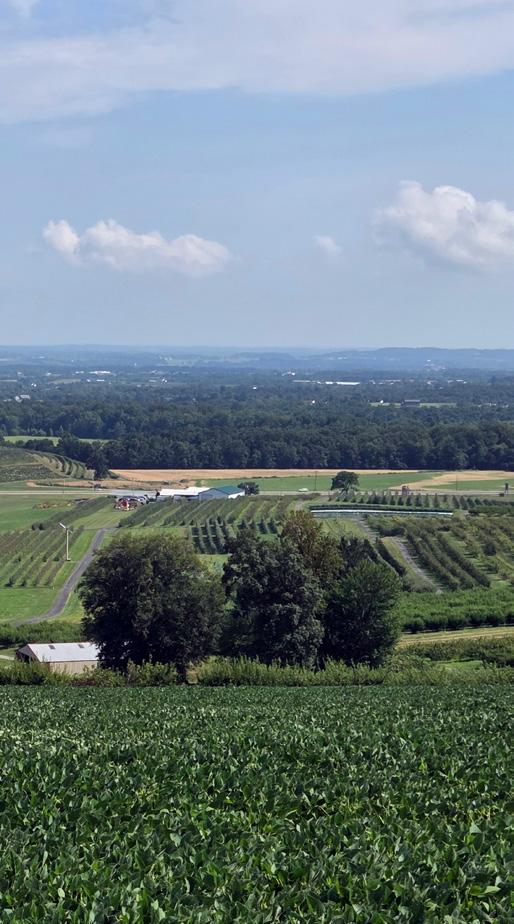
Catoctin Mountain Orchard has the largest variety of plums in the area. “We are just plum crazy,” Black joked.
Next on the list of tasks was grading apples that recently came in. This was done by lowering a crate of apples into a machine that was purchased by Bob’s father back in 1965. The apples float to the top, get washed, rinsed, and shined up.
Catoctin Mountain Orchard grows nearly two dozen other fruits and vegetables on nearly 85 acres. I was able to get a tour of the farm and the views from the top of the hill are stunning. On a good day, you can see everything from Union Bridge to Sugarloaf Mountain. We stopped to check out some apples that looked nearly ready to pick. We each tried one, and they definitely seemed ready to me.
At any given moment, Bob could either be buying or selling to others. He not only sells retail at the roadside market, but also sells wholesale to a number of other businesses. A group of “tailgaters” as he calls them are a group of loyal customers who pull up with their tailgates down to load up on several items that are then resold to about a half dozen farmers markets throughout the greater DMV region. On this day he was preparing to take apples and peaches to the Frederick County Public continued page 59

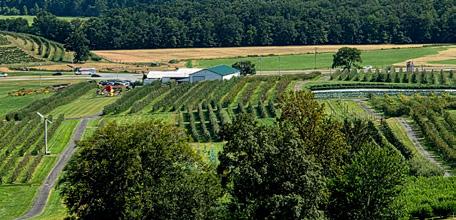
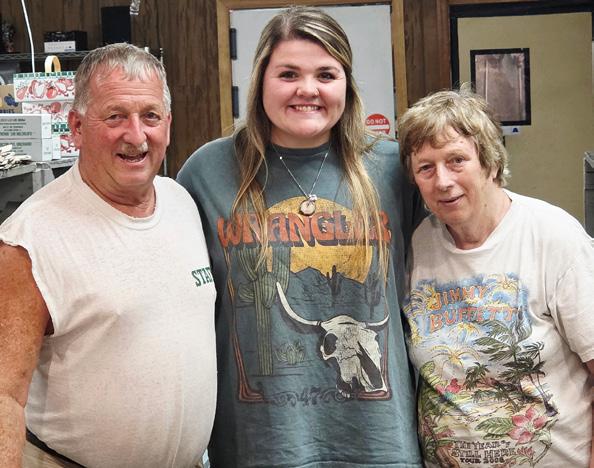
In addition to running a business, Black finds time to give back. He has served on a variety of boards, commissions and committees, including being the captain of the local fire police.


Schools warehouse so local students can have fresh, local food with their lunches. He also talked about the importance of collecting consumer data. For example, Bob knows that half of the customers coming into his market are new, which they are able to determine based on ZIP codes through credit card purchases via Square. He also can tell the top 10 items that are purchased each day. No surprise, pies are at the top! He is always trying to figure out what’s next.
Although Bob is president, Catoctin Mountain Orchard is definitely a family affair. His sister Pat is assistant treasurer. His granddaughter, Katlyn Robertson, is treasurer and other granddaughter Kylie Robertson is the human resources director.
In addition to running a business, Black finds time to give back. He has served on a variety of boards, commissions and committees, including being the captain of the local fire police.
He is humble, as he will tell you “I’m just Bob Black,” but he has also been recognized with numerous awards, including national recognition for his work.
Keeping a farm and farm market in operation for more than 60 years is not easy. Farming is already a demanding job. It always has been, but particularly this day and age. And being a business and entrepreneur also adds additional responsibilities. You have to keep up with the times, you have to adapt to the changes in the market, and you have to always be aware of what your customers want.
Kudos to Bob Black and his family of farmers who keep contributing to the community, decade after decade. 3


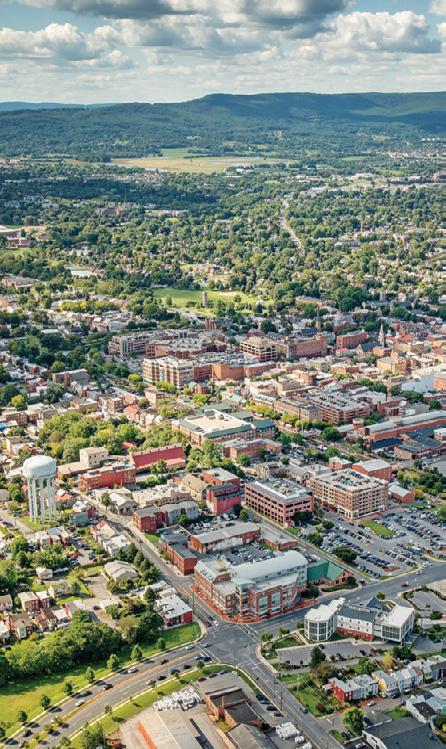

By Mary Ford-Naill
Frederick is the fastest-growing region in Maryland—and it’s no accident. Behind the headlines of business expansions, award-winning programs, and transformational projects lies a simple truth: economic development in Frederick is a team sport.
Our region’s “secret sauce” isn’t just location, talent, or quality of life—it’s the way we work together. Every day, the City of Frederick, Frederick County, the State of Maryland, higher education institutions, and private sector leaders collaborate to create opportunities and drive growth. This culture of partnership sets Frederick apart.
Entrepreneurship is at the heart of Frederick’s economy, and local partnerships ensure innovators have the tools to succeed. The Frederick Innovative Technology Center, Inc. (FITCI) provides space, mentorship, and programming to help new businesses grow, while the County’s EmPOWER Program supports startups and business growth for underrepresented entrepreneurs.
Frederick also champions small and women-owned businesses through initiatives like the Frederick County Chamber of Commerce’s S.H.E. Pitch Competition, which celebrates and supports female entrepreneurs. The competition provides visibility, mentorship, and funding opportunities, helping women founders accelerate growth and strengthen their role in Frederick’s business community.
Together, these efforts ensure Frederick’s entrepreneurial ecosystem is inclusive, innovative, and built for long-term success.
Attracting
Collaboration also drives business attraction. The City and County partner with the State of Maryland on site selection, industry conferences, and global outreach. Through the Maryland Global Gateway Soft-Landing Program for Foreign Companies, Frederick has welcomed international firms establishing their first U.S. operations here—further strengthening our reputation as a competitive, globally connected community.
A prime example of collaboration is the future Downtown Frederick Marriott Hotel and Conference Center on Carroll Creek Park. Years in the making, the project is a public/ private partnerships, including the City, County, and State. Once complete, it will provide 204 much-needed full service hotel rooms, plus conference space which will attract visitors, and boost downtown businesses with new jobs and investment. These partnerships have already secured millions in public and private funding, proving that bold ideas become reality when everyone rows in the same direction.
continued page 62





The Food Business Entrepreneurship Program—a collaboration between Frederick Community College, the City’s Department of Economic Development, and the Frederick County Office of Agriculture—equips aspiring food entrepreneurs with training, mentorship, and access to resources. The result is a growing pipeline of food businesses that strengthen Frederick’s local economy and celebrate its agricultural heritage. Recently, the program earned a Gold Award from the International Economic Development Council, national recognition for an initiative that could be replicated across the country.
Workforce partnerships ensure Frederick residents are prepared for opportunities in high-growth industries. The Biotech Bootcamp—developed by City and County Economic Development, Frederick County Workforce Services, Frederick Community College, and the Maryland Manufacturing Extension Partnership—provides pathways into entry-level careers in life sciences. Recognized statewide, the program reflects Frederick’s commitment to building talent pipelines for the industries that define our region’s economy.
Economic development and quality of life go hand in hand. Organizations like the Downtown Frederick Partnership, East Frederick Rising, and the Golden Mile Alliance work alongside Visit Frederick to showcase Frederick’s historic charm, cultural amenities, and diverse communities. Recently, Visit Frederick coordinated with partners to bring Fox 5 News for live coverage, highlighting Frederick’s history, vitality, and exceptional quality of life to a regional audience.
We often hear about Frederick’s “secret sauce.” It’s not one project or one program—it’s the partnerships. We consult with each other, support one another, and celebrate shared successes. From award-winning workforce training to entrepreneurial programs and transformational developments, Frederick thrives because collaboration is in our DNA.
In Frederick, we don’t just talk about partnerships—we live them. And that’s why Frederick continues to grow, thrive, and lead as one of Maryland’s strongest and most connected regions.
Connect with the City of Frederick’s Economic Development team to explore opportunities, partnerships, and growth in our thriving community. www.businessinfrederick.com 301.600.6360 businessinfrederick@cityoffrederickmd.gov


Mary Ford-Naill is the Manager of Economic Development for the City of Frederick, where she leads efforts to attract and retain businesses across diverse industries. She holds a BA and MBA from Hood College and is a graduate of the Executive Program of Leadership Maryland (2023) and Leadership Frederick County (2003). Mary has over 30 years of experience in commercial and residential real estate and has also owned her own business. Passionate about community and service, she thrives on fostering longterm, collaborative relationships.

CORPORATE MEMBERSHIP PROGRAM
YMCA OF FREDERICK COUNTY




Resources to help create the Ultimate Networking Experience




